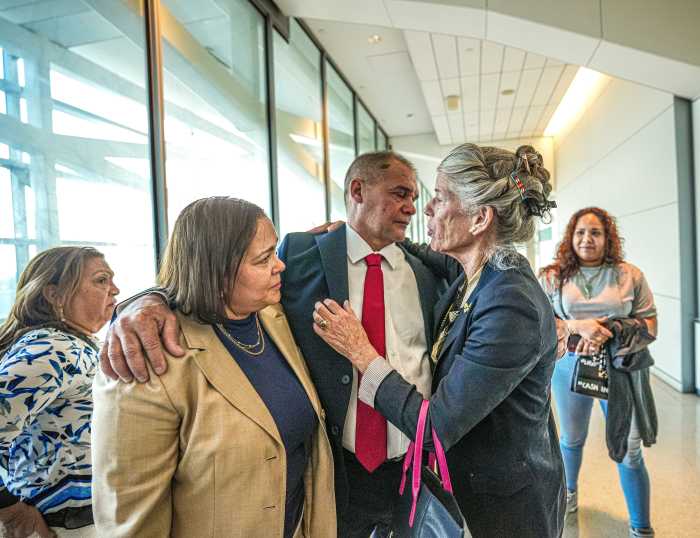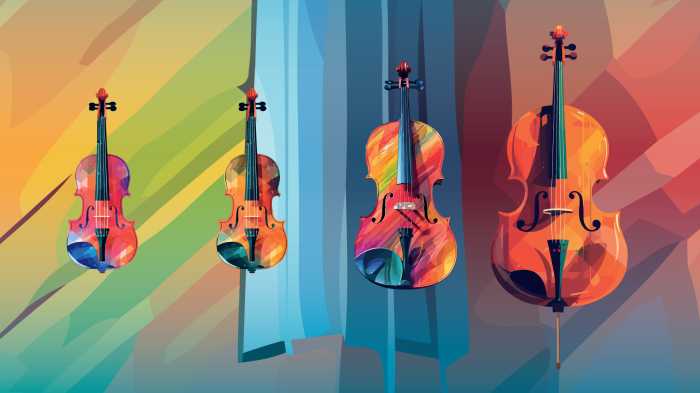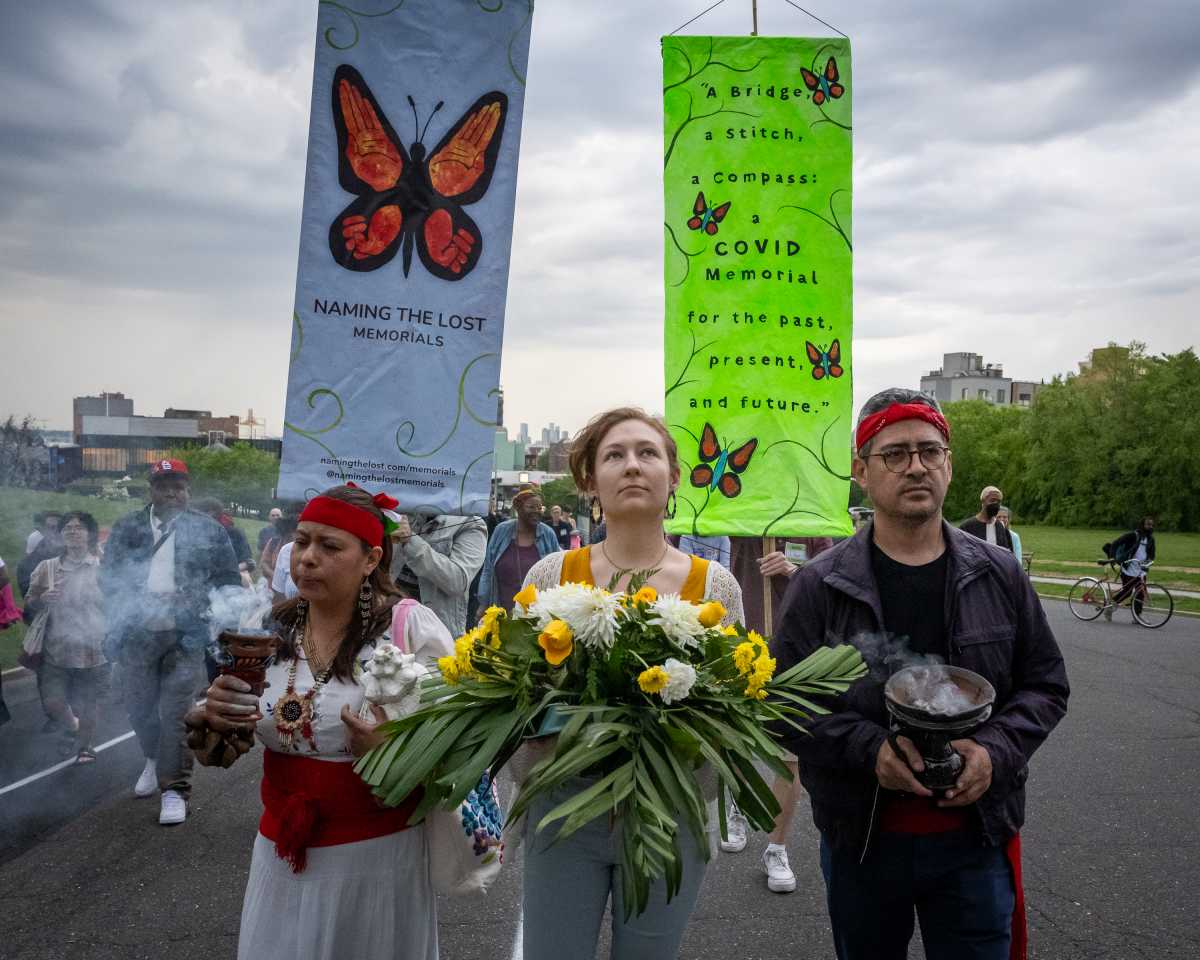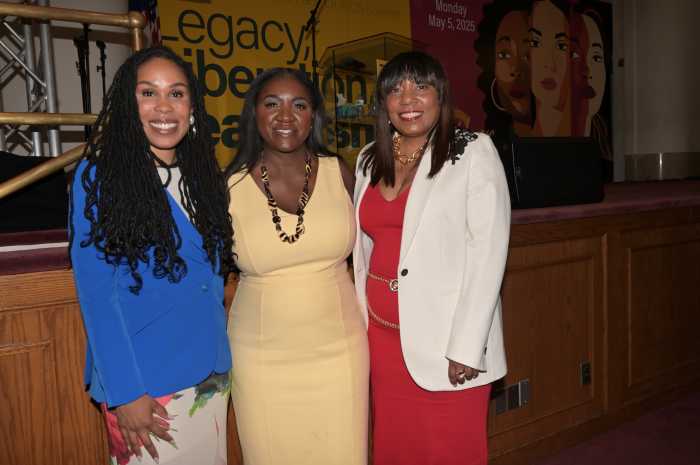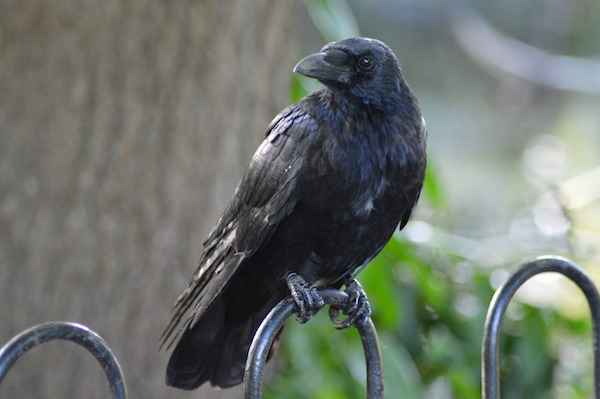
BY LISA RUIMY HOLZKENNER
Why is the Raven here and where is he going?
But no one on earth knows why we are here.
And which of us remembers the way back?
In April, the end of winter, a late afternoon,
Going to my nest to get some rest
Feeling blessed
For living in this Oasis of a place.
Nostalgic dreams filled with hopes
For spring to be born,
All of the things I know that delight our senses:
The smell of the earth, the aroma of fresh grass,
The flowers in full bloom, a celestial fragrance of perfume.
The trees soon will be dressed with new leaves,
The birds on branches and twigs
In a willful choir will sing a hymn
That will speak of wonderful things
To see and hear with the coming of spring.
All of a sudden I hear an unknown shriek or a croak
Sounding like a crow with a sore throat.
I look up in the sky, I see a big bird
Mysterious looking, strange and wild,
A solitary Raven with no visible mate.
I wonder what brought him here
Away from the Sabbath silence of wilderness,
From his element of woods green and air so pristine.
Like an astronomer of earth
Using his aerial skills as a compass
He hovers over my head.
I love birds, enjoy and admire their beauty and respect their wisdom.
They cojoin us with the natural world
A place where we become nostalgic
For what we are and always will be: part of nature.
Above all I have learned to respect birds for they are wise
And have much to teach us about life,
Things that we are not ready to hear or willing to feel.
I have read about and heard of Ravens
But I’ve never had the pleasure of meeting one.
Unconstrained by manmade frontiers,
Raven crosses from North to South, West to East, the fence and the street.
The Grand Seigneur flying restlessly, he seems perplexed
Finding a suitable place to get some rest,
But he is at his best when he flies toward Heaven
Where the sky is his sovereignty, where he can fly and be free.
Like a moving breeze with spread wings
As he flies higher up there in the sky, he seems at peace.
His uttered sounds ring with joy
Welcoming nature’s rebirth.
Watching this Grand Seigneur
Even for several teeny minutes, I am at awe; my heart is in a nameless thrill.
His wings a coat-of-arms is his natural attire
Interwoven with iridescent shades like an aurora of jet black.
His eyes are like meteors, shrewd and sharp,
To scrutinize his foe and prey.
His beak sharp as a knife,
His claws robust as hunting tools.
He is the embodiment of his own beauty.
A symbol of fierce deeds and a tower of courage
With a whimsical nature of double-edge,
An ambiguous bird evoking age-old associations
Of fury, mercy, life and death.
He forebodes death, yet he fed Elijah in the wilderness.
In doing so, Raven’s act of sharing devoured death itself.
Grateful we are to Raven, for all men are Elijah’s children,
And hope that his sharing kindness remains the same.
Like an acrobat of speed and sheen
He circles, drops and soars higher and higher.
Rolling in virtuous waves
In the wind he folds, stroke by stroke, and
When nearest to the sky, in a mystic ring,
He flashes his wings in a rapture divine.
I must admit I feel like a proud parent
Watching her child excel at what he does best.
Raven’s piloting skills make me feel like applauding him,
Watching this bird even for fleeting moments
Transcend the harshness of reality.
Raven swoops above a tree.
With ecstasy he sings without words to his tune
A hymn for the air, the sun and the earth,
Telling of things soon to bloom.
He looks solemn, as though in the depth of contemplation,
Like a philosopher or a poet choosing his words.
Looking around like Mack the Knife,
Master of cunning artifice is his survival instinct.
His piercing eyes in pursuit of a specific delicacy,
He takes off from the tree landing amid
The birds, squirrels and those hiding in the grass — his neighborhood meal.
On the lawn he hops like a jumping jack.
Poor creatures with the predator in their mist
Disperse around, watching closely every move Raven makes.
The epicurean Raven cannot choose
From the smorgasbord displayed before his eyes.
Thanks to the fragile luck of grace, no one is dead.
He croaks as though in anger,
To seek prey for his ancient hunger.
From the grass he flies to the top of a tree
From where he watches me.
I am not sure of what he is thinking.
I am fanciful and envision Raven studying me
And what conclusion he might reach
About my behavior and his magical effect on me.
My neck becomes twisted
But my love for the bird keeps me allured.
I can’t help but wonder if in his ancient memory he still recalls
That we all rose from the same origins of life,
From the amoeba in the sea,
To the earth, the sky, the stars and more,
From which we are all made,
Raven and me and all God’s creatures living on earth.
Nature separated us to different destinies
Yet, we are in many ways alike,
Intertwined for eternity
Like atoms separate yet connected,
Which to the naked eye cannot be seen
And to the unconscious are still unknown.
All testify to God’s divine creative imagination.
Raven flaps his wings.
“Oh, please before you leave, now that we are neighbors,
I have one request. I implore you try your best.
If you have bad news,
Find an excuse for death to take its time.”
Raven opens his slender mouth on purpose,
Uttering sounds of meaning without words.
I hear a voice that seems to say,
“To change the nature of man and of my kind, we need a science of mind
But I pledge to try my best.” I shake my head, knowing well what he means.
He takes off from the tree,
His wings like a shimmering reverie,
And leaps on the back of the wind fully free against gravity.
From the fringe of a cloud
With mellow music in his throat
He seems to sing to me a mystic melody, a salute before he goes.
Soaring upward to a roofless world closest to the realm of love and peace,
In a wink of an eye he is gone,
Breaking the spell of my trance.
Raven heading to a dwelling unknown,
Who knows his waking dreams?
Maybe looking for his family,
Maybe finding a mate,
Building a nest or attending to a newborn.
Whatever his destination,
Good luck, Raven, for making your home in our Oasis at Penn South, in Chelsea,
In this beautiful country of the United States of America.
Lisa Ruimy Holzkenner was born in Morocco, lived briefly in France and Israel, and has resided in Manhattan for the past 51 years. A psychoanalyst with extensive clinical experience in the treatment of post-traumatic stress disorder, early childhood development, and family therapy, Holzkenner has lectured extensively on her clinical work.

She loves photographing birds, flowers, and anything visual that creates nostalgia for what we were, what we are, and what we always will be: part of nature. Her photographs have appeared in various publications, as well as in a traveling exhibition on the life of Bayard Rustin. Most recently, her poem, “Hidden Identities in Transition,” inspired by the Jews of Belmonte, Portugal, appeared in the United Federation of Teachers’ publication, “Reflections in Poetry and Prose 2015.”



